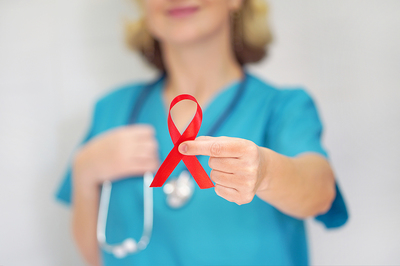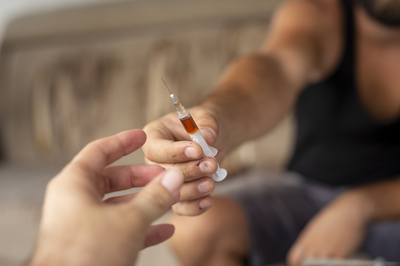
In addition to the threat of addiction, injection drug users also face higher rates of HIV infection.
Approximately 1.2 million people in the US are living with HIV, according to the website HIV.gov. People who inject drugs are at increased risk of viral infections, including HIV diagnoses. A 2019 government initiative, Ending HIV Epidemic: A Plan for America, sets forth four key strategies aimed at eliminating HIV infections in this country. In addition to early diagnosis, rapid treatment, and quick responses to potential outbreaks, prevention is identified as a critical pillar.
Enter PrEP and PEP, both of which can play an invaluable role in this effort.
Here’s a closer look at the association between drug use and viral infections like HIV, HBV, and HCV, along with how PrEP and PEP can be used to help reduce the spread of viral infections among drug users and other at-risk populations.
Drug Abuse and HIV
Drug users and other people who engage in high-risk behaviors associated with drug use are at increased risk for both contracting and transmitting HIV, hepatitis, and other viral infections.
According to CDC data shared by the National Institute on Drug Abuse (NIDA), a tenth of all HIV diagnoses occur among injection drug users. Women and men are both at risk when it comes to drug abuse and HIV. With the former, the link can be especially alarming as women with the virus can pass it along to their babies during pregnancy and while breastfeeding.
HIV is primarily spread through blood and other body fluids. Injection drug users are vulnerable for two reasons:
- First, people who inject drugs often share needles and other equipment.
- Second, drug use leads to impaired judgment, which can result in unprotected sex.
Given that more than 162,500 of the more than a million people in the US who are living with HIV are unaware that they have the condition, this phenomenon may result in an unknowingly infected partner spreading the virus to an uninfected one.
PrEP, PEP and Prevention
While HIV was once seen as a death sentence, the outlook is more hopeful today. While there’s no vaccine or cure for HIV, there are medications that can help prevent its transmission and spread.
Specifically, pre-exposure prophylaxis (PrEP) for HIV and post-exposure prophylaxis (PEP) for HIV are improving the chances of an HIV-free life for people struggling with substance abuse.
PrEP involves taking a daily dose of HIV medication as a form of prevention. It can be an effective prevention approach for people who are at significant risk of contracting HIV. Research has shown that PreP can reduce the risk of HIV infection among injection drug users.

When combined with other strategies such as avoiding sharing needles, PrEP and PEP can help decrease the risk of HIV infection.
PEP involves taking antiretroviral medications after potential exposure to HIV to prevent infection. Per the CDC, it should only be used in emergencies and within 72 hours of possible exposure. If you or someone you love thinks you’ve been exposed to HIV through sharing needles, sex or sexual assault, consult with your health care provider or visit an emergency room as soon as possible. If you’re prescribed PEP, it must be taken once or twice a day for 28 days.
While neither PrEP nor PEP are 100 percent effective in HIV prevention, they can contribute to lessening the spread of viral infections among injection drug users. Other ways to reduce risk include not using drugs, refraining from sharing drug equipment, prompt testing and treatment, practicing safe sex, and getting vaccinated for Hepatitis B.
One final preventative measure? Seeking treatment for substance use disorder. Leading St. Louis rehabilitation center Harris House has been providing comprehensive and individualized substance abuse treatment programs to addicts and the people who love them for more than 50 years, Harris House can help people suffering from addiction lessen their risk of HIV and other viral infections and take a giant step toward a healthy and sober life. Call us to learn about admissions today.







